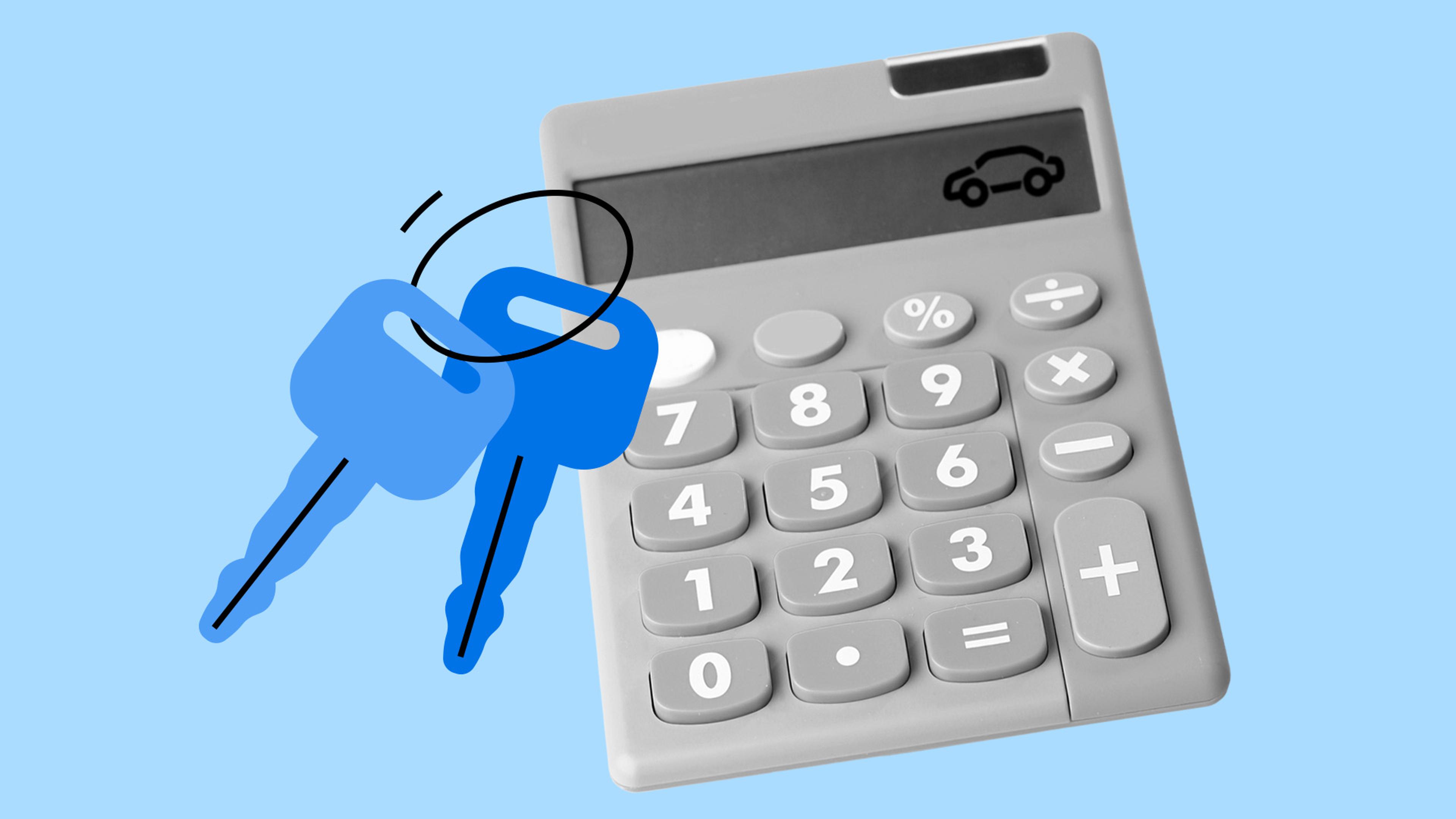04/10/2024
Is buying a leased car a good idea?

When a lease term ends, drivers have a choice: return the vehicle or buy it. Buying a leased car can be a smart move, especially if you’ve taken good care of it and the buyout price is fair. However, buying your leased car isn’t always the best option.
In this article, we’ll explore the pros and cons of purchasing your leased vehicle and what to consider before making your decision.

Need help buying a used car?
Enter a VIN code to learn more about any vehicle!
What is a lease buyout and how does it work?
A lease buyout is when you purchase the vehicle you’ve been leasing instead of returning it to the leasing company or dealership.
If your lease agreement allows, you can buy the car before or at the end of the lease term for its projected end-of-lease value. However, if you choose to buy the vehicle early, you’ll still need to pay what’s due. The buyout price is usually specified in your lease agreement and is based on the lessor’s calculations, taking into account the vehicle’s initial value, depreciation, lease term, and other factors.
The buyout price is usually non-negotiable, but in certain situations (like if the lessor wants to avoid the hassle of reselling, there’s low demand, or you decide to finance your purchase through them), some leasing companies might be open to reducing it.
Alternatives to buying a leased car
Alternative | Pros | Cons | Best for |
Return the leased car | No further commitment; flexibility to choose a new car | Possible extra fees for wear and tear, excess mileage | Those who want a new car or don’t need the current one anymore |
Extend the lease | Stay with the current car; flexibility to decide later | Still tied to the lease; may have higher long-term costs | Those who can’t decide whether to buy or switch cars |
Lease a new car | Get a newer model; no long-term commitment | Lease payments continue; could be more expensive | People who want to upgrade to a new vehicle regularly |
If you don’t want to buy the car, you can simply return it to the lessor at the end of your agreement. Be ready for a final inspection. As long as you’ve met the lease terms, stayed within the agreed mileage limits (extra charges may apply), and the car is in expected condition, you’re all set.
Another option is to extend your lease. You can usually choose between formal and informal extensions. An informal extension allows you to keep driving the car past the contract’s expiry date for up to 6 months (usually until the return is requested), while a formal extension provides a renewed lease agreement that can last up to 12 months.
You can also lease a new car, which is a great option if you want to drive a newer or different model. Many drivers use the informal lease extension to bridge the gap between lease agreements.
Pros and cons of buying a previously leased car
Buying a previously leased car can be tempting, but like any car purchase, it comes with advantages and disadvantages. Here are some key things to keep in mind.
Advantages of buying a leased car
- Lower price. Previously leased cars have already gone through their initial depreciation, so they’re sold at a lower price than new models, even though they’re usually only a few years old.
- Known history. If you’re considering buying the car you’ve been leasing, you have the advantage of knowing its history – how well you’ve maintained it, your driving habits that might affect its wear and tear, and its overall performance. In short – there likely won’t be any big surprises.
- Newer technology. Leased cars are usually newer models with the latest technology and safety features, which aren’t always available in older used cars.
- Warranty coverage. Since many previously leased cars are only a couple of years old, they’re often still covered by the manufacturer's warranty, reducing the risk of unexpected repair costs.
Disadvantages of buying a leased car
- Buyout price. Since the buyout price is already decided in your lease agreement, it may be higher than the actual market value of the car by the end of the lease. Skipping careful market research could lead to overpaying.
- Limited negotiation power. As terms are typically specified in the leasing contract, your options for negotiating may be limited.
- Missed opportunities. By buying the car you've been leasing, you limit yourself to a single option. While you may be familiar with the vehicle, you might end up missing out on newer models or better deals.
What to consider before buying a car that was leased?
One of the main reasons to buy your leased car is simply that you like it! You’ve grown attached to it, it runs smoothly, and you’d rather avoid the hassle of searching for another vehicle.
However, putting emotions aside, there are several practical factors to consider. Ask yourself the following questions before making a decision.
1. How will you pay for the car?
One of the key things to consider before buying your leased car is how you’ll pay for it. Do you have the cash, or will you need to take out a loan? If you’re thinking about financing, make sure to compare different options to increase your chances of getting a better deal.
Look at loan terms and interest rates, and estimate your potential payments under various conditions. Keep your leased car’s value in mind, as financing a leased vehicle doesn’t always make financial sense. For example, longer loan terms generally come with higher total interest costs, which could lead to owing more on a car loan than the car is actually worth.

2. Is the car’s value higher than the buyout price?
The car’s end-of-the-lease value stated in your contract is your lessor’s calculated guess, which may not be entirely accurate several years later. It could end up either less or more than current market value, meaning you’ll need to use careful research to work out if the car is actually worth buying.
Start by browsing local online listings for similar vehicles in your area to get an idea of what others ask for the same make and model. You can also use online valuation and comparison tools, such as Auto Trader, WhatCar?, or Parkers, to check your car's current market value and compare it with the buyout price of your lease.
3. How long do you want to drive the car?
Another important factor is how long you plan to keep and drive your leased car. Put simply, the longer you use it, the more you spread out the buyout cost, making the purchase more financially worthwhile.
However, if you’re thinking of switching to another vehicle in the near future, buying your leased car might not make financial sense. In this case, you could end up selling or trading in the vehicle before fully realising its value, potentially losing money due to depreciation.
4. Have you followed the pre-agreed terms in your lease agreement?
Two essential points here are returning your leased car in good condition and staying within pre-set mileage limits outlined in your lease agreement. If you exceed these limits or there’s excess wear and tear, you’re generally required to pay penalties. In such cases, buying your leased car could be the better option.
For instance, penalties for exceeding your mileage allowance can vary from 5p to 30p per additional mile, depending on your contract. If you exceeded your limit by 15,000 miles on a three-year lease with a 5p per mile fee, you’d have to pay £2,250 when returning the car. The same logic applies to excessive damage, like dents or scratches.
In this situation, the money might be better spent buying the car instead.
So, should you buy a car after the lease is up?
Considering all the above, buying a car after the lease is up can be a good option if:
- The car’s value is higher than the lease buyout price
- You’re happy with the car, have taken good care of it, and know it’s reliable
- Your vehicle needs haven’t changed, and you’re not planning to switch to another car in the near future
- You have exceeded mileage limits specified in your lease agreement, or there’s more wear and tear than expected (which could result in penalties)
- You hate car shopping!
Ultimately, your decision should be made carefully through consideration and calculation, not just emotional attachment.
Buying a leased car from a dealer or leasing company can be a smart move if the price is right, the vehicle is in good condition, and it aligns with your long-term plans and budget. However, if the buyout price is too high or you’re ready for something new, returning the car and exploring other options might be the better choice.
Check the financial status of any used car before buying
Sometimes, a driver’s needs or financial situation may no longer align with their decision to lease a car, leading them to sell it. However, you can’t legally sell a vehicle that isn’t yours, and this is where things can get complicated for unsuspecting buyers.
For instance, lease agreements often include restrictions on transferring the vehicle, meaning the person leasing the car might need approval from the leasing company to sell it. If they haven’t received this approval, the transaction might not be valid. Moreover, if the person leasing the car sells it before the lease ends, they could face early termination fees or other penalties, which could complicate the sale or lead to unexpected costs for you.
Therefore, when buying any used car, get a carVertical vehicle history report. This report can reveal whether the car has any outstanding finances, including lease and operating lease agreements. To avoid the mentioned complications, it’s generally safer to buy a car that the seller fully owns.

That’s not to mention that a carVertical report can help you uncover the car’s history to get a better idea of its overall condition. This includes information on damages, mileage records (and discrepancies), historical photos, theft and stolen status, ownership changes, and more.
As mentioned earlier, knowing a (leased) vehicle’s history is one of the key factors in choosing whether or not to buy it. Understanding how well a car was treated in the past can help you gain greater confidence in your decision.

Check your registration number
Avoid costly problems by checking a vehicle's history. Get a report instantly!
